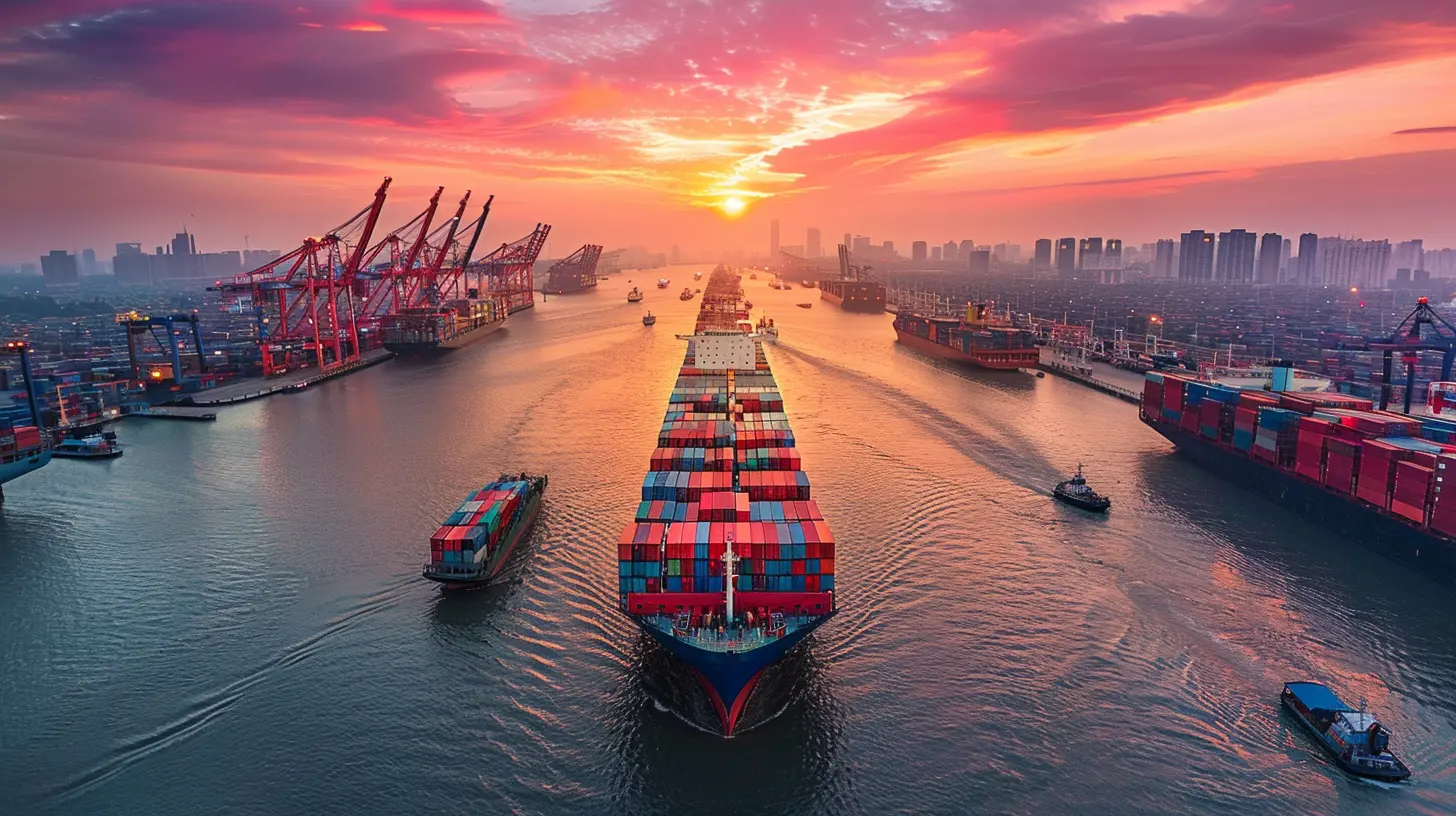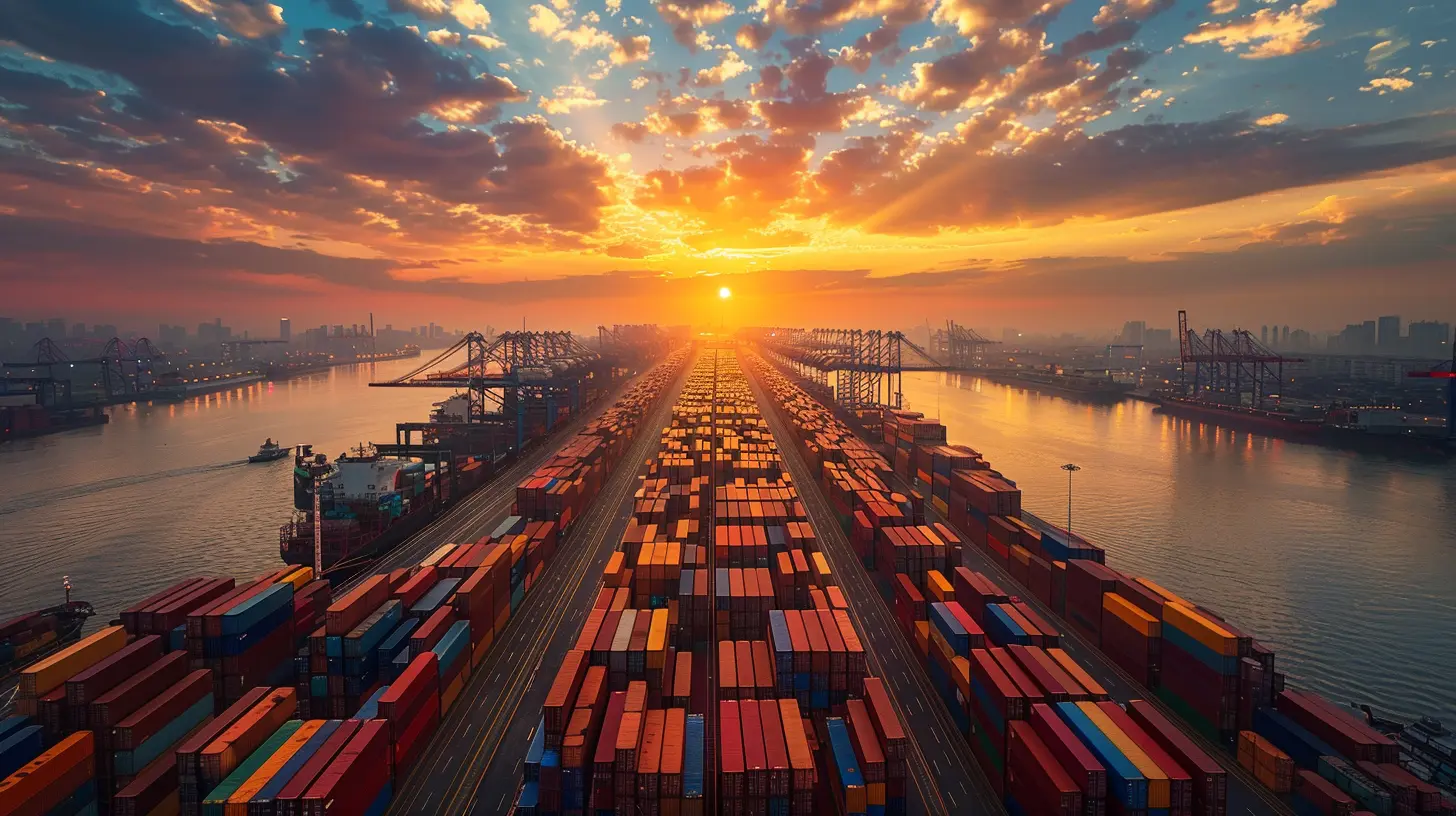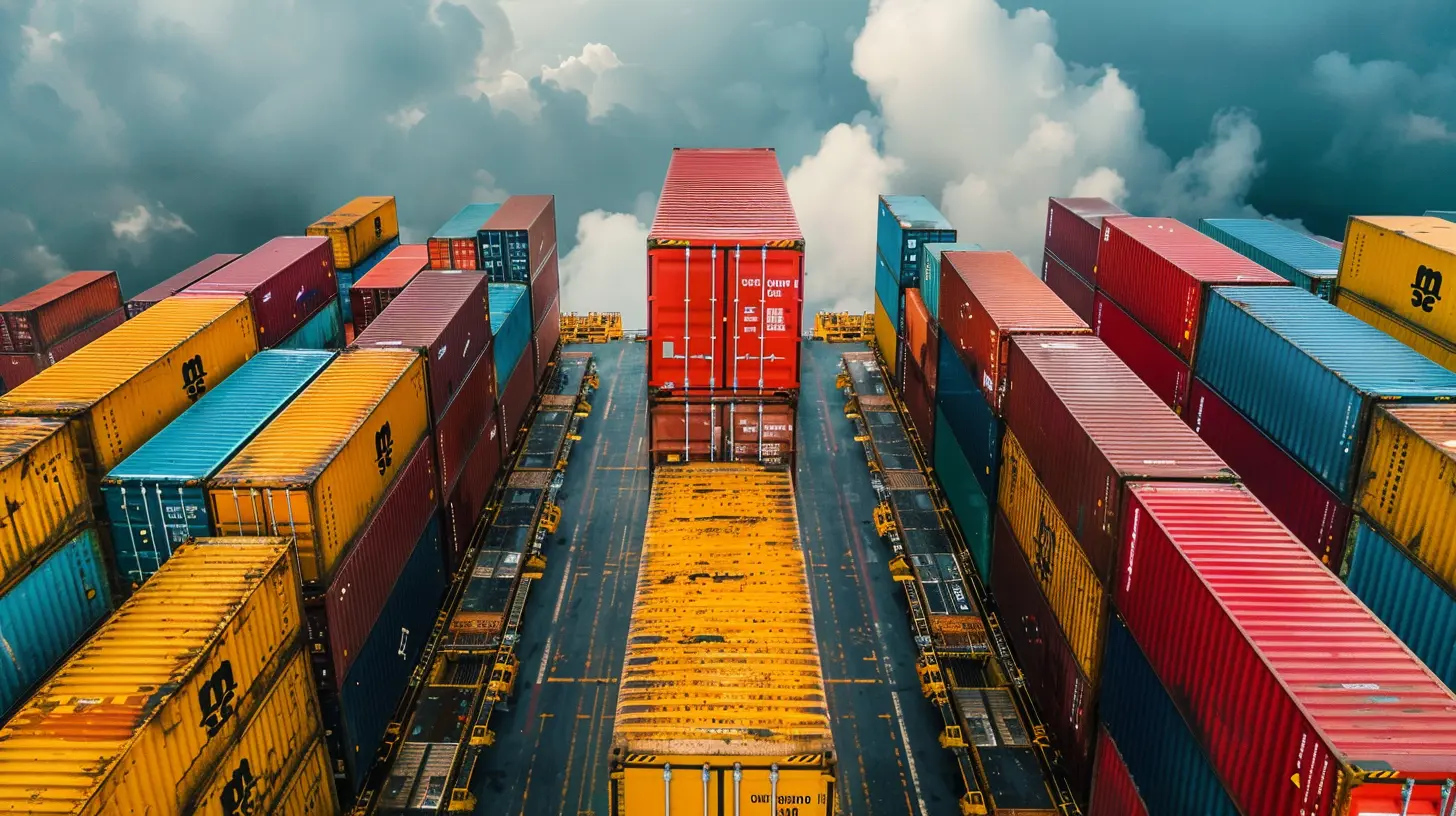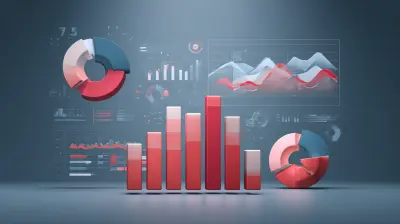The Role of Ethical Sourcing in Strengthening Supply Chains
4 July 2025
Let’s face it—today’s consumers are more curious and conscious than ever before. They're not just buying a product; they’re investing in what that product stands for. And in this fast-paced, globally connected world, words like “sustainable” and “ethical” are no longer just buzzwords. They're becoming the backbone of successful supply chains.
So, what exactly is ethical sourcing? And why is it such a game-changer when it comes to building a resilient, future-ready supply chain?
Grab your coffee and settle in. We’re diving deep into how ethical sourcing plays a crucial role in strengthening supply chains—and why businesses can’t afford to ignore it.
What is Ethical Sourcing, Really?
Okay, let’s break it down.Ethical sourcing means making sure your products are obtained in a responsible and sustainable way. It’s about ensuring fair labor practices, safe working conditions, and environmentally friendly processes throughout the supply chain.
It’s not just a checkbox. It’s a mindset.
Imagine being proud of everything that went into your product—from the raw materials to the packaging. That’s the power of ethical sourcing. It’s like putting your company’s conscience on display.
The Supply Chain: More Than Just a Delivery Line
Many people think of a supply chain as trucks, warehouses, and delivery drivers. But it’s way more than that.Your supply chain is a living, breathing organism. Every link—from the farmer who grows the raw materials, to the manufacturer, to the person who ships your product—is part of a bigger story. When even one part of that chain breaks down or becomes ethically questionable, it can affect everything—from brand reputation to profitability.
That’s where ethical sourcing comes in. It strengthens every link in the chain by building trust, transparency, and accountability.
Why Should Businesses Care?
You might be thinking, “Sure, ethical sourcing sounds nice. But does it really matter to the bottom line?”Absolutely. Here’s why:
1. Brand Loyalty & Consumer Trust
Consumers today aren't just shopping—they're voting with their wallets. They want to support brands that align with their values. If your company is caught using sweatshop labor or polluting water sources, it could blow up in your face—literally overnight.But if you can proudly say, “Hey, our supply chain is clean, fair, and ethical,” customers are more likely to stick around.
2. Risk Reduction
Let’s be real—unethical practices are risky. Think lawsuits, PR disasters, regulatory fines, even canceled contracts. Ethical sourcing helps you avoid all that mess. It's like putting your supply chain in a suit of armor.3. Resilience in Times of Crisis
Remember how the COVID-19 pandemic turned supply chains upside down? Ethical sourcing creates stronger relationships with suppliers, making it easier to weather storms together. If you treat your partners fairly, they're more likely to have your back when times get tough.
The Building Blocks of Ethical Sourcing
So, what does it actually look like in practice?Here are the key pillars:
1. Fair Labor Practices
No child labor. No forced labor. Ethical sourcing starts with treating people like people—not machines.Companies must ensure all workers across the supply chain are paid fair wages, work reasonable hours, and operate in safe conditions.
2. Environmental Responsibility
This means sourcing materials that don’t harm the planet. Think renewable resources, reduced emissions, and minimizing waste. It’s about making sure your supply chain isn’t leaving a trail of destruction behind.3. Transparency
Don’t hide behind layers of middlemen and murky contracts. Ethical sourcing involves knowing exactly where your materials come from and who’s involved in each step of the process.Supply chain mapping tools and blockchain tech are making this easier than ever.
4. Community Impact
Are the communities around your suppliers thriving or suffering? Ethical sourcing isn't just about “doing no harm”—it’s also about creating positive change. Partnering with local communities can lead to better quality, increased loyalty, and long-term relationships.How Ethical Sourcing Strengthens the Whole Supply Chain
Let’s get into the nitty-gritty. How does ethical sourcing actually make your supply chain better?1. Boosts Supplier Relationships
When you treat suppliers with respect—pay fair prices, offer long-term contracts, and maintain honest communication—they're more committed to your success. That trust leads to more reliable production, fewer delays, and better quality.2. Improves Quality Control
Factories that follow ethical labor practices tend to operate more efficiently and produce better quality goods. Plus, with greater visibility into your supply chain, you're less likely to run into quality surprises.3. Enhances Agility
Ethical supply chains are typically more transparent, which makes them more adaptable. When something goes wrong (because let’s face it—stuff happens), you can quickly trace issues and find solutions.4. Attracts Investors and B2B Partners
More investors and business partners are prioritizing ESG (Environmental, Social, Governance) factors. An ethical supply chain shows you're serious about sustainability and social responsibility, which can make you a more attractive partner.Real-World Success Stories
Let’s not keep this theoretical. Some of the most successful global brands are already reaping the benefits of ethical sourcing:- Patagonia has built its entire brand around environmental and ethical responsibility. Their transparency with customers has created a cult-like following.
- IKEA has committed to sourcing wood only from responsibly managed forests and ensuring workers throughout their supply chain are treated fairly.
These companies aren't just doing good—they’re doing well. They're proof that ethics and profits can go hand in hand.
The Challenges (Because Let’s Be Honest)
Now, we won’t sugarcoat it—ethical sourcing isn’t always easy.It can cost more up front. It may require overhauling existing supplier relationships. And it certainly demands effort in terms of research, audits, and compliance.
But the long-term payoff? Totally worth it.
Think of it like planting a tree. It might take time to grow, but once it blooms, it offers shade, fruit, and deep-rooted strength.
How to Get Started with Ethical Sourcing
Feeling inspired but not sure where to start? Don’t worry—you don’t have to restructure everything overnight. Here’s a step-by-step roadmap:1. Assess Your Current Supply Chain
Start by figuring out where you're at. Identify your suppliers, trace your materials, and look for potential red flags.2. Set Clear Ethical Standards
Establish guidelines on labor, environmental practices, and transparency. These should be non-negotiable and shared with every partner.3. Choose the Right Partners
Vet suppliers carefully. Look for those who align with your values and are willing to provide proof of ethical practices.4. Monitor and Audit
Regularly review performance. Third-party audits, certifications, and on-site visits can help ensure standards are being met.5. Communicate Openly
Let your customers know about your journey. Be honest about where you’re excelling—and where you’re still trying to improve. Authenticity goes a long way.The Future of Supply Chains is Ethical
We’re entering an age where doing the right thing isn’t just the nice thing—it’s the smart thing.Companies that embrace ethical sourcing are setting themselves up for long-term success. They’re building stronger supply chains, earning deeper customer loyalty, and attracting meaningful business relationships.
And let’s not forget—they’re also helping to build a better world.
Because at the end of the day, a supply chain isn’t just about moving products. It’s about connecting people, communities, and values. And when those connections are built on ethics, everyone wins.
Final Thoughts
Ethical sourcing isn't a trend. It's a transformation.It asks us to look deeper, to care more, and to act with intention. Yes, it takes effort. Yes, it may cost a little more. But in return, it gives you a supply chain that’s stronger, smarter, and far more sustainable.
And that’s something we can all get behind.
all images in this post were generated using AI tools
Category:
Supply Chain ManagementAuthor:

Remington McClain
Discussion
rate this article
1 comments
Zorion Jacobs
This article highlights the critical importance of ethical sourcing in enhancing supply chain resilience. By prioritizing sustainable practices and fair labor conditions, businesses not only build trust but also contribute to long-term success and value creation.
July 11, 2025 at 12:21 PM

Remington McClain
Thank you for your insightful comment! I completely agree that ethical sourcing is vital for building resilient supply chains and fostering long-term success.


